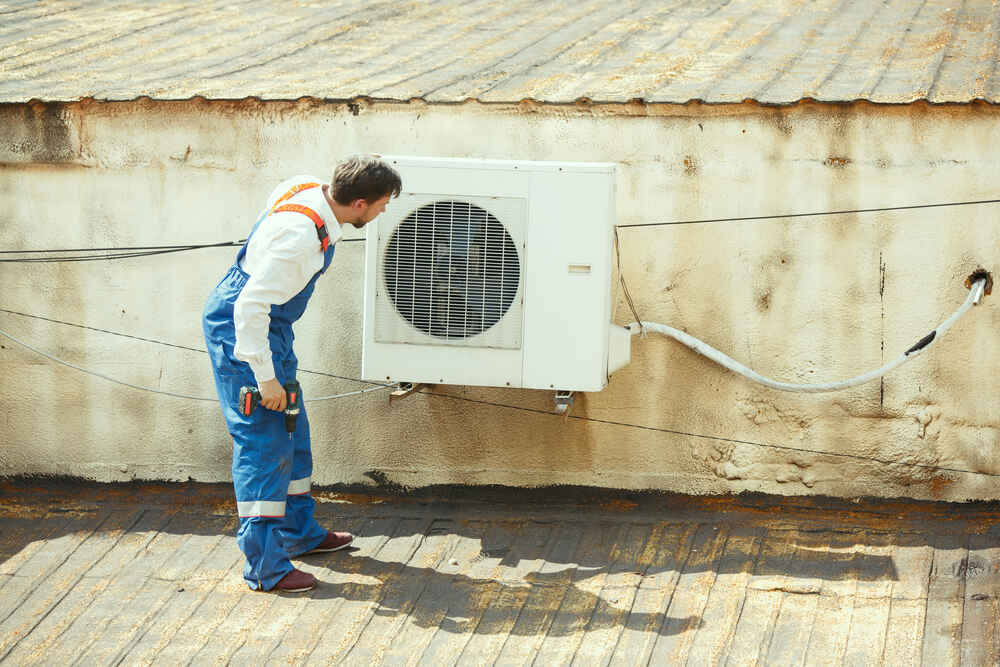After a long summer, unsatisfactory HVAC maintenance and an overworked or maturing system can cause your HVAC unit to experience difficulties during the fall season. Imagine having to go without heating during the colder seasons because you have neglected to repair your system after summer is over. Sounds hard to believe, but its true. In order to avoid this ensure that you call an experienced HVAC technician before this affects the comfort of you and your loved ones. Bear in mind that these mends can be made only if you keep up with your maintenance appointments.
HVAC Maintenance Repairs To Look For When Summer Is Over
Sealing Refrigerant Leaks
The sealing of refrigerant leaks is an activity that should be taken very seriously. This is one of the most common problems you can encounter after working your HVAC system too arduous during the summer season. Remember refrigerant should never be disappearing from the HVAC system at any given time. If this happens contact us! Your system will be examined in-depth for leaks and the appropriate repairs carried out efficiently.
Cleaning The Coils
Have your coils inspected and cleaned at regular intervals. HVAC coils can accumulate plenty dust and debris. This can cause the internal components of the system to freeze and hence contribute to low productivity. If you want your system to work at optimal levels you should schedule maintenance to have this problem rectified.
In addition the collection of dust can be hazardous to health as well. Allergy and asthma instances are related to dust accumulation in the home and work place. Make sure to maintain a healthy environment by having your coils cleaned. Take good care of your health at any cost.
Clogged Condensate Drain
Normally, condensation gathers on the evaporator when the system is operating at cooling capacity. This condensation generally has somewhere to empty out however, if the condensate drain is blocked, the water build up will end up coming back into your home. Now that the cooling season is over take time out to have this assessed right away.
We at Valley Comfort Heating and Air Conditioning want to ensure that you feel comfortable this season. Contact us for full maintenance and inspection. Our expert team will rectify all issues and have your system working at its best. We are in the business of helping Californians adapt to the ever constant, seasonal changes that occur each year.
Preparing Your HVAC System for Fall Allergies
As cooler weather sets in, your HVAC system can become a magnet for allergens like dust, pollen, and mold spores that have built up during summer. To ensure optimal air quality, consider upgrading to high-efficiency air filters (like HEPA filters), which trap smaller particles and prevent allergens from circulating through your home. Additionally, scheduling a duct cleaning can eliminate hidden contaminants that regular filter changes may miss, ensuring your family breathes clean, fresh air all fall long.
Preventing fall allergies is about more than comfort; it can have a significant impact on your health. Research shows that indoor air pollution can be 2 to 5 times worse than outdoor levels. For those with asthma or other respiratory issues, keeping your HVAC system clean and well-maintained is essential for managing symptoms. So, before the cool air hits, take preventive steps to keep allergens at bay.
FAQs for HVAC Maintenance After Summer
1. Why does my HVAC system struggle after summer?
The strain of cooling your home throughout the summer can wear out key components like the refrigerant lines, coils, and filters. When these parts go unchecked, the system struggles to provide efficient heating during fall. Scheduling post-summer maintenance ensures that your HVAC unit can transition smoothly and avoid unexpected breakdowns.
2. How often should HVAC coils be cleaned?
HVAC coils should be cleaned at least once a year, preferably after heavy usage seasons like summer. Dust and debris can accumulate on the coils, causing inefficiency, freezing, and poor air quality. Regular cleaning prevents airflow issues and ensures your system operates efficiently.
3. What are the signs of a refrigerant leak in my HVAC system?
Common signs of a refrigerant leak include inadequate cooling, higher energy bills, hissing sounds from the unit, or frozen evaporator coils. A technician can detect and fix leaks, ensuring your system works properly without wasting energy.
4. Why is my condensate drain clogged after summer?
Clogs in the condensate drain are usually caused by algae, mold, or debris buildup, especially after the humid summer months. When blocked, water can overflow and damage your home’s interior. To prevent this, have a technician clean the drain regularly.
5. What is the impact of dirty HVAC filters on my system?
Dirty filters restrict airflow, making your HVAC system work harder and less efficiently. This can lead to higher energy bills, reduced air quality, and faster wear on components. Changing filters every 1-3 months can help maintain system efficiency.
6. Can HVAC maintenance help reduce fall allergies?
Yes, HVAC maintenance plays a crucial role in improving indoor air quality. Cleaning coils, ducts, and replacing air filters can reduce allergens like dust, pollen, and mold, helping you breathe easier during allergy season.
7. How can I improve my HVAC system’s efficiency after summer?
To improve efficiency, ensure the system is cleaned, refrigerant levels are correct, and filters are replaced. Additionally, sealing any leaks in the ductwork and optimizing thermostat settings can help reduce energy consumption.
8. What temperature should I set my thermostat to in fall?
In fall, set your thermostat to around 68°F (20°C) while you’re home and lower it when you’re away to save energy. A programmable thermostat can help manage temperatures automatically, improving efficiency.
9. How do refrigerant leaks impact my energy bills?
A refrigerant leak forces your HVAC system to work harder to maintain temperature, leading to higher energy consumption. Addressing refrigerant leaks early can prevent spikes in energy bills and restore your system’s efficiency.
10. Why does my HVAC system make strange noises after summer?
Strange noises like banging, hissing, or rattling often indicate issues such as loose parts, refrigerant leaks, or clogged filters. Post-summer maintenance can help identify and fix these issues before they cause more damage.




